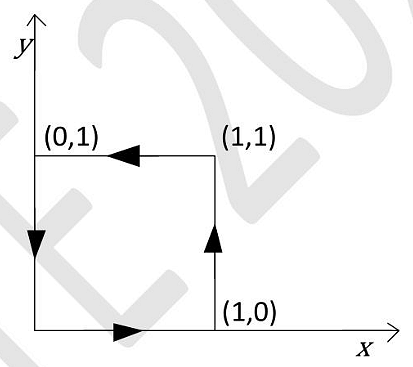The set defined by \(A = \{ n \in \mathbb{N} \mid (1 + n^2) < 50 \}\) , where N is the set of natural numbers, then the mean value of elements of A is
- 1
- 6
- 4
- 3.5
The Correct Option is D
Solution and Explanation
We are given the set \( A = \{n \in \mathbb{N} \mid \frac{1}{1 + n^2} < 50 \} \), which means that for each element \( n \) of \( A \), we have the condition: \[ \frac{1}{1 + n^2} < 50 \] First, we solve for \( n \). Rearranging the inequality: \[ 1 + n^2 > \frac{1}{50} \] \[ n^2 > \frac{1}{50} - 1 = \frac{-49}{50} \] Since \( n^2 \) is always positive for natural numbers, the inequality holds for all natural numbers. Next, we observe that the elements of \( A \) must be natural numbers. We list the elements of \( A \) that satisfy the condition \( 1 + n^2 < 50 \), i.e., \( n^2 < 49 \). The values of \( n \) satisfying \( n^2 < 49 \) are: \[ n = 1, 2, 3, 4, 5, 6 \] Thus, the elements of the set \( A \) are \( \{1, 2, 3, 4, 5, 6\} \). To find the mean value of the elements of \( A \), we calculate the average: \[ \text{Mean} = \frac{1 + 2 + 3 + 4 + 5 + 6}{6} = \frac{21}{6} = 3.5 \] Thus, the mean value of the elements of \( A \) is \( 3.5 \).
The correct option is (D): \(3.5\)
Top Questions on Sets
- Mode of the data \( 19, 2, 6, 12, 12, 3, 5, 6, 18, 14, 6, 17, 2 \) is:
- The mean and mode of 5, 3, 9, 1, 9, 8, 9, 4 are m and n respectively, the value of m+n is?
- If A = {1, 2, {3, 4}, 5}, then which of the following is incorrect?
- If A and B are the two sets containing 3 and 6 elements respectively, then what can be the maximum number of elements in A∪B?
- For \(\vec{F}=(x+y)\hat{i}+(x+y)\hat{j}\) the value of \(\oint\vec{F}.d\vec{r}\) along the path shown in the figure is ________. Give your answer as an integer.

Questions Asked in AP POLYCET exam
- What is the process called when fats and oils are oxidised and their smell and taste change?
- AP POLYCET - 2025
- Chemical Reactions
- What is the law of conservation of mass?
- AP POLYCET - 2025
- Chemical Reactions
- What is the product formed when magnesium ribbon is burnt in oxygen?
- AP POLYCET - 2025
- Chemical Reactions
- What is the significance of writing physical states in a chemical equation?
- AP POLYCET - 2025
- Chemical Reactions
- What is the law of conservation of mass?
- AP POLYCET - 2025
- Chemical Reactions